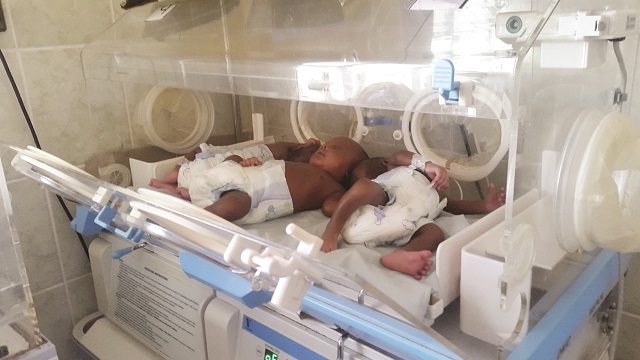Home birth gone wrong. . . Woman gives birth to triplets, dies – Hubby appeals for assistance

Patrick Chitumba, Midlands Bureau Chief
A 34-YEAR-OLD Gokwe woman died after a home delivery of bouncing triplets went wrong.
The babies, all girls, are still admitted to Gweru Provincial Hospital, a month after their birth and the death of their mother.
Their father yesterday said he has no means or capacity to look after them as he had five other children and their mother is late.
Both mother and father, who were members of an apostolic sect did not know that she was carrying triplets as she never went to a health facility for antenatal care until she gave birth to one of the girls, only to be rushed to hospital due to complications, but it was too late to save her life.
Antenatal care is a type of preventive healthcare, with the goal of providing regular check-ups that allow doctors or midwives to treat and prevent potential health problems throughout the course of the pregnancy while promoting healthy lifestyles that benefit both mother and child.
Ms Maria Chigwadara died on the night of June 8 and medical experts yesterday said her death could have been avoided if she had gone through antenatal care.
The triplets’ father Mr Aleck Ncube Muza (68), an unemployed villager from Musadzi Village in Gokwe-Nembudziya was already struggling to feed his other children. He yesterday sent a plea for help to Zimbabweans to assist him with food and clothes for the triplets.
The babies, he said, were still admitted to Gweru Provincial Hospital’s special baby’s ward — a month after their birth because he has no means to look after them.
He told the Chronicle that there were complications at birth and his wife had to endure a five-hour drive from Gokwe’s Mutora District Hospital to Gweru Provincial Hospital where she died upon admission due to severe loss of blood.
“On June 7 my wife gave birth to one of the babies and we realised that she had more babies and was bleeding profusely before we took her to hospital.
“She then gave birth to two more children through an operation after which they said she needed to be transferred to Gweru because the bleeding was continuing,” he said.
“On June 8 she then endured a five-hour drive from Mutora District Hospital to Gweru Provincial Hospital where she died on admission. They said she lost a lot of blood.”
Asked who had assisted with the botched-up home delivery, Mr Muza could not answer.
Mr Muza said he is grateful for the three children, but appealed for donations in cash or kind to look after them. He said he has no fixed income and had five other children, some of school going age, he also needed to take care of.
“I’m appealing for assistance to take care of the babies after I lost my wife during child birth. The blessing of the three bouncing baby girls has turned the joy of my family into despair. I am appealing for food, clothes, napkins and money. The triplets are at Gweru Provincial Hospital as we speak and I don’t know how or where to take them if they are discharged,” said Mr Muza.
Gweru Provincial Hospital superintendent Dr Fabian Mashingaidze said Ms Chigwadara’s life could have been saved if health care givers had been aware that she was carrying triplets.
“All I know is that she was a referral case and unfortunately passed on before we could assist her. She is said to have lost a lot of blood. Investigations are still ongoing,” said Dr Mashingaidze.
Government specialist consultant and gynaecologist Dr Veldah Mushangwe said the death of Mrs Chigwadara was due to low platelets and severe bleeding experienced during delivery.
She said no one should lose life while giving birth.
“Such cases should be avoided and I urge expecting mothers to register their pregnancies in time so that complications are dealt with accordingly. We are saying no to maternal deaths and expecting women should register early and go for antenatal care. Women should seek antenatal care early so that complications are identified and interventions made at the correct time,” said Dr Mushangwe.
“Maternal mortality has been recognised as a public health problem in most developing countries and is linked to women failing to access health care during pregnancy and the complications they face while giving birth.”
According to the recently-released Zimbabwe Demographic Health Survey (ZDHS), about 20 percent of Zimbabwean births over the past five years occurred at home, statistics which experts have described as unacceptably high.
Recently, a gender activist Ms Lindile Ndebele said the statistics show that many women were still at risk of maternal deaths.
“This shows that women are still failing to access healthcare generally due to financial constraints, long distances for those in rural areas and other issues,” she said.
The World Health Organisation defines maternal mortality as the death of a woman while pregnant or within 42 days of termination of pregnancy, irrespective of the duration and site of the pregnancy, from any cause related to or aggravated by the pregnancy or its management, but not from accidental or incidental causes.
@pchitumba1











Comments